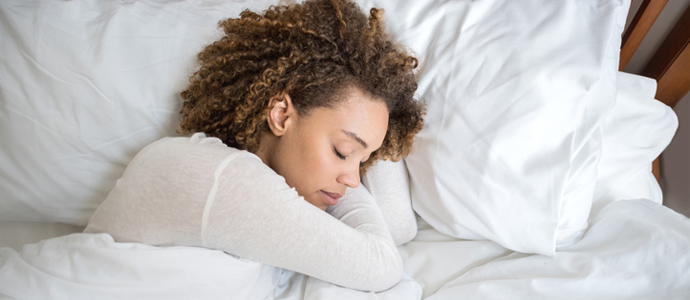4 Bedtime Routines That Maximize Your Professional Productivity
 Have you heard the joke about the guy who sleeps like a baby every night? You know, he wakes up every two hours crying.
Have you heard the joke about the guy who sleeps like a baby every night? You know, he wakes up every two hours crying.
That's a pretty 'tired' punchline, but sleep loss is no laughing matter to the millions of Americans (at least 1 in 3 adults) who sleep fewer than 7 hours each night.
Travel and stress—two common ingredients in the HIT consultant lifestyle—are root causes of short-term insomnia, making it harder to be productive for clients.
Insomnia is associated with a bevy of short- and long-term health risks that range from decreased bone density to increased heart attack risk. And there are economic costs as well, with one study suggesting employers lose an estimated $411 billion, and over 1.2 million work days annually due to groggy, sleep-deprived employees.
>>Have Hot Health IT Jobs Delivered To Your Phone.
Waking up refreshed and rejuvenated will help you approach each new job with more energy, drive, and passion. Here are four strategies to ensure your bedtime (and daytime!) habits strengthen your health and wellbeing, and maximize your workplace productivity.
- Turn off your electronic and smart devices when bedtime nears. Put your phones, tablets, and all other devices on silent or sleep mode a few hours before you’re ready to hit the hay. Why? Researchers from the National Sleep Foundation say light emitted from these devices disrupts your circadian rhythm and tricks your brains into thinking the sun is out. Hence, you may find it harder to fall asleep if you’re still browsing the web after hours. If, however, you must work online at night, new research from the University of Haifa suggests utilization of your device’s blue light filter will help prevent damaging emission of sleep hindering light.
- Pay closer attention to your diet. What you eat determines how you sleep. When you’re on the road, try avoiding those ever so tempting foods high in saturated fat and carbohydrates – which reportedly interrupt your sleep cycle -- to maximize your energy levels and thereby prevent exhaustion. (Especially avoid these foods close to bedtime.) And try prepping more food from home so you always have healthy food options available on hand as needed during your travels.
- Keep your melatonin levels up. Melatonin is a naturally produced hormone that helps the body regulate sleep. "It doesn’t make you sleep, but as melatonin levels rise in the evening it puts you into a state of quiet wakefulness that helps promote sleep,” explains Johns Hopkins sleep expert Luis F. Buenaver, Ph.D. Boosting your body's natural sleep regulation with melatonin supplements may help you get to sleep more quickly, according to research. For occasional insomnia, take 1 to 3 milligrams two hours before bedtime, says Buenaver, but don't rely on supplements to treat chronic insomnia.
- Learn to handle jet lag like a pro. A major contributor to sleep deprivation is jet lag. Researchers from the National Sleep Foundation suggest adjusting your sleep schedule a few days before you pack your bags and head to the airport. Try getting up and going to bed earlier several days before your trip, and set your watch and/or electronic devices for the time zone of your travel destination as soon as you’ve boarded the plane. Once you’ve landed at your destination, try to spend as much time as you can manage outside, as more daylight exposure is a simple way to naturally adjust your circadian rhythm.